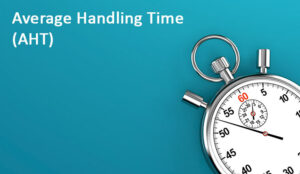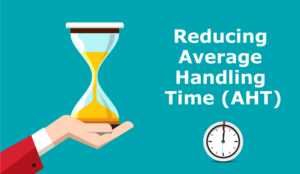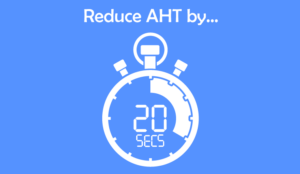AHT Glide Path
Hello. I’d like to know what would be your recommendations on how to come up with the most accurate AHT glide path.
Our account is planning to ramp up on a monthly basis with a target of 48 FTEs per month. We also have 2 skills for the program – one on insurance products calls and one servicing medical claims calls. If we are to create a glide path for their weighted aht, how can we best achieve this? what data do we consider as pat of the formula.
Thanks.
Question asked by Jeff
An Example of an AHT Glidepath
This video explains how it works and you can also download a free copy of the spreadsheet.
Thanks to Jonty
Glide Path
I may be a bit out of my element…the only time I have ever heard of a “glide path” is involving planes or well…gliders…
but using that as a base I think you are asking how much you expect your AHT to drop as your people gain more experience? (maybe?) If so, I wouldn’t expect it to drop anything.
Maybe if you clarify that term for me though I can lend more insight.
With thanks to Justin
Glide Path
Hi Justin,
Sorry about that. Yes it is usually termed vis-a-vis planes. But the essence of it is, yes , related to creating a AHT path ahead so you’d better manage your agents’ learning curve. With a “glide path” in place to forecast a weekly trend on how their progressing with AHT, we can create a more efficient roadmap of post-training activities on performance management.
So let’s say you have a new class of reps who just got out of classroom training and are ready to go on production alongside veteran reps. If you were to measure AHT progress for 8 weeks beginning with the kickoff week of their production, where would you base your “glide path” or AHT prediction from? What items would you consider to derive an accurate path? FTE count? Call volume forecast? % of distribution of calls based on skill?
With thanks to Jeff
Glide Path
Difficult one, the actual AHT achieved is affected by a number of factors making an accurate glide path difficult so you have to work within a range;
1. Time of day can affect call length
2. Mix of calls,you state there are two skills, each may have a completely different call duration and if you only look at an overall AHT it is going to vary by the mix of call types potentially quite drastically.
3. Quality – some agents may quickly exceed the glide path target but at the expense of quality, others may fall short of the glide path but then have a greater focus on the quality element with the speed picking up later when they get more confident.
To set up a glide path you are going to need historical data to guide you or gut feel based on the complexity of the training required and how the agents behave in the training environment especially when they start to take live calls near the end of training. Also dont pick the high flyers because they provide a nice curve that meets the financial perspective, these are not the norm, you will need a mix to get the average curve.
With thanks to Julian
Find Joe Average
Get your training department to highlight to you trainees who are average performers. Then measure their work output immediately they leave training and at predetermined intervals after that.
You will also need to factor in the impact of any subsequent skills/knowledge/quality interventions whilst within your measuring period and how this impacts the other variables.
With thanks to Closed
Glide Path
Thanks Julian. Great input!
With thanks to Jeff
Historical Data
If the campaign is current, there must be historical data that you can look back at. Check the previous ‘glide path’ for all new starters and then calcualte a mean average to take into account top & low performers.
Set mile stones throughtout the entire path, setting specific training / coaching sessions to develop the agent to the desired standard. Reflections can be made from each day/week/month of the advisor development showing advisor that may be struggling, these are the guys who may need more ‘attention’ from a training point of view. Don’t get me wrong, these guys are not at fault, there may be a requirement to change the way initail training is delivered if there is a pattern where advisors are struggling to meet targets.
HTH
With thanks to Ian
Author: Jonty Pearce
Reviewed by: Robyn Coppell
Published On: 12th Apr 2022 - Last modified: 3rd Oct 2025
Read more about - Call Centre Questions, AHT Glidepath, Average Handling Time (AHT), Call Centre Answers















